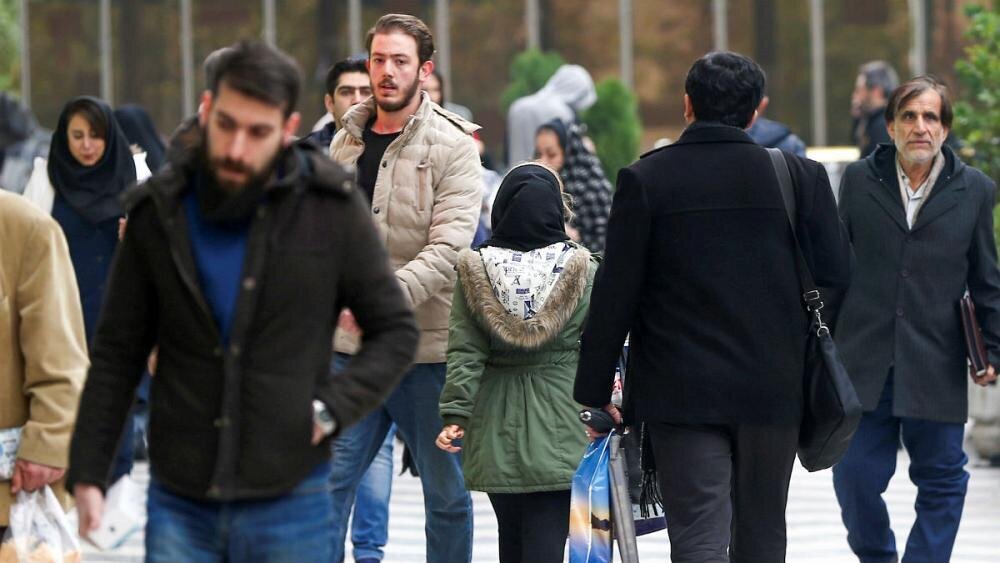Iran 76th among 191 countries on Human Development Index

TEHRAN - The Human Development Index (HDI) report of the United Nations Development Program (UNDP) released on September 8 has placed Iran 76th among 191 countries as a nation with a high human development index.
With a score of 0.774, Iran ranked higher than Ukraine, China, Armenia, Mexico, and Brazil.
Titled “Uncertain Times, Unsettled Lives: Shaping our Future in a Transforming World” the HDI measures the average achievement of a country in three basic dimensions of human development — a long and healthy life, education, and a decent standard of living.
It is calculated using four indicators — life expectancy at birth, mean years of schooling, expected years of schooling, and the Gross National Income (GNI) per capita.
The countries in the ranking are categorized into “very high human development” comprising countries ranked 1 to 66, “high human development” comprising countries ranked 67 to 115, “medium human development” comprising countries ranked 116 to 159, and “low human development” comprising countries ranked 160 to 191.
Switzerland with an overall score of 0.962 tops the list.
The HDI is a summary measure for assessing long-term progress in three basic dimensions of human development: a long and healthy life, access to knowledge, and a decent standard of living.
It argues that layers of uncertainty are stacking up and interacting to unsettle life in unprecedented ways. The last two years have had a devastating impact on billions of people around the world, when crises like Covid-19 and the war in Ukraine hit back-to-back, and interacted with sweeping social and economic shifts, dangerous planetary changes, and massive increases in polarization.
The Gender Development Index (GDI) is based on the sex-disaggregated Human Development Index, defined as a ratio of the female to the male HDI. The GDI measures gender inequalities in achievement in three basic dimensions of human development: health, education, and command over economic resources. This means that the grouping takes into consideration inequality in favor of men or women equally.
The Gender Inequality Index (GII) reflects gender-based inequalities in three dimensions of HDI. Reproductive health is measured by maternal mortality and adolescent birth rates; empowerment is measured by the share of parliamentary seats held by women and attainment in secondary and higher education by each gender, and economic activity is measured by the labor market participation rate for women and men.
For the first time in the 32 years that UNDP has been calculating it, the Human Development Index, which measures a nation’s health, education, and standard of living, has declined globally for two years in a row.
With a score of 0.774, Iran ranked higher than Ukraine, China, Armenia, Mexico, and Brazil.
Human development has fallen back to its 2016 levels, reversing much of the progress toward the Sustainable Development Goals.
The reversal is nearly universal as over 90 percent of countries registered a decline in their HDI score in either 2020 or 2021 and more than 40 percent declined in both years, signaling that the crisis is still deepening for many.
While some countries are beginning to get back on their feet, recovery is uneven and partial, further widening inequalities in human development. Latin America, the Caribbean, Sub-Saharan Africa, and South Asia have been hit particularly hard.
“The world is scrambling to respond to back-to-back crises. We have seen with the cost of living and energy crises that, while it is tempting to focus on quick fixes like subsidizing fossil fuels, immediate relief tactics are delaying the long-term systemic changes we must make,” says Achim Steiner, UNDP Administrator.
“We are collectively paralyzed in making these changes. In a world defined by uncertainty, we need a renewed sense of global solidarity to tackle our interconnected, common challenges.”
The report explores why the change needed isn’t happening and suggests there are many reasons, including how insecurity and polarization are feeding off each other today to prevent the solidarity and collective action we need to tackle crises at all levels. New calculations show, for instance, that those feeling most insecure are also more likely to hold extreme political views.
“Even before Covid-19 hit, we were seeing the twin paradoxes of progress with insecurity and polarization. Today, with one-third of people worldwide feeling stressed and fewer than a third of people worldwide trusting others, we face major roadblocks to adopting policies that work for people and the planet,” says Achim Steiner.
“This thought-provoking new analysis aims to help us break this impasse and chart a new course out of our current global uncertainty. We have a narrow window to re-boot our systems and secure a future built on decisive climate action and new opportunities for all.”
To chart a new course, the report recommends implementing policies that focus on investment—from renewable energy to preparedness for pandemics, and insurance—including social protection— to prepare our societies for the ups and downs of an uncertain world. While innovation in its many forms—technological, economic, cultural—can also build capacities to respond to whatever challenges come next.
“To navigate uncertainty, we need to double down on human development and look beyond improving people’s wealth or health,” says UNDP’s Pedro Conceição, the report’s lead author.
“These remain important. But we also need to protect the planet and provide people with the tools they need to feel more secure, regain a sense of control over their lives, and have hope for the future.”
MG
Leave a Comment